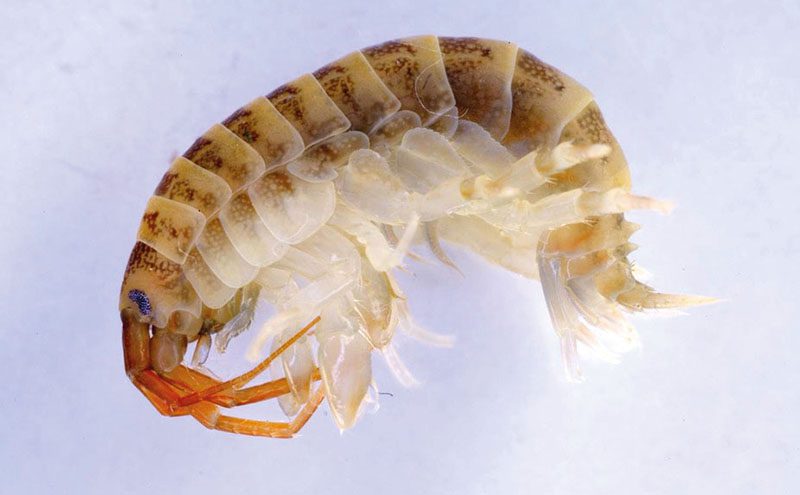
Scientists working with the charity Salmon & Trout Conservation UK (S&TC UK) have come across evidence of a boom in the population of the non-native demon shrimp Dikerogammarus haemobaphes in UK rivers, a foreboding discovery for those concerned about the country’s native aquatic wildlife.
Nick Measham from S&TC UK is said to be extremely alarmed by the rapid spread of this foreign invader. He said: “This demon shrimp, like its cousin, the killer shrimp, is an eastern European invader about which we know very little. It is an omnivorous beast and it’s likely that its diet includes other aquatic invertebrates. We thought that it only inhabited the slower reaches of rivers and canals. Yet, it has now successfully colonised a fast flowing riffle on the Churnet with disturbing ease and appears to be wreaking havoc by feasting on the indigenous aquatic invertebrate community.”
Working with S&TC UK, Dr Nick Everall from Aquascience Consultancy and fellow ecologist Nick Mott from Staffordshire Wildlife Trust have reported some worrying evidence about the demon shrimp from a site in the River Churnet, a tributary of the Dove in Staffordshire. On the evidence from this site, the threat to native invertebrates could be significant.
Dr Everall said: “The results from three-minute kick-sweep samples taken at one Churnet site on five occasions from January 2014 to October 2016 are stark. The demon shrimp population has boomed, rising from zero in 2014 to 442 in the October 2016 sample after it invaded in 2015.”
The sampling identified that the native freshwater shrimp, Gammarus pulex, has disappeared along with many other mayfly species, while stonefly and caddis have also suffered severe declines.
Plants, insects, fish, mammals and bird-life will suffer as a result of the loss of flylife, which plays a crucial role in the aquatic food chain. Basically, lose your flylife and you will lose many other important species too.
Dr Everall continues, “Other factors may be at work but it is hard to avoid the unpalatable truth that the demon shrimp has eaten many of the native aquatic invertebrates on this stretch of river. The potential threat from the spread of this invader is clear and it can quite rapidly have a profound impact on the balance of our whole aquatic ecosystem. These are early indications but it is clear further monitoring and studies are urgently required on other rivers.”
It appears that the demon shrimp has been introduced into UK rivers through the canal system and it is likely that it arrived from the Black Sea via Holland.







